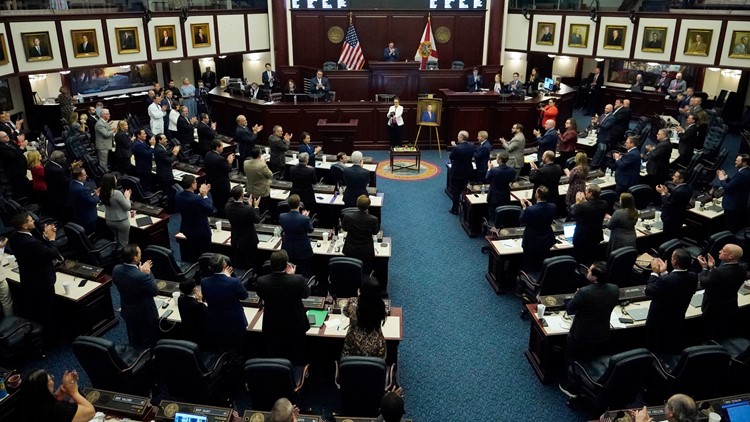TALLAHASSEE, Fla. — Lawmakers in Florida's House of Representatives approved a bill on Thursday that will revamp the state's alimony laws. The measure now heads to Gov. Ron DeSantis for his signature.
In a 74-42 vote, representatives agreed to pass the bill (SB 1796) which puts an end to permanent alimony payments.
Instead, alimony payments would be dependent on the length of a marriage.
The language of the legislation states, "durational alimony may not exceed 50 percent of the length of a marriage lasting between three and ten years, 60 percent of the length of a marriage lasting between 10 and 20 years, or 75 percent of the length of a marriage lasting 20 years or longer."
The bill also states that alimony recipients who have incomes less than 130 percent of the federal poverty level and are caretakers for children with disabilities would be able to object to the ending of payments. A judge can then grant an extension of alimony.
However, critics of the bill say that change does not take into consideration what is in the best interest of the child.
In a statement, the Family Law Section of the Florida Bar urged DeSantis to veto the bill. The law group says the bill could have a "serious impact" on pending awards of alimony.
"Proposed changes to alimony in this bill are retroactive and will affect existing and pending awards of alimony, impacting countless marital settlement agreements and final judgments," said Heather L. Apicella, chair of the Family Law Section of the Florida Bar, in part.
"This sets a dangerous precedent for contractual agreements in Florida, and we are deeply concerned that this public policy erases equitability and sets up a system that heavily favors one party, while damaging the other unnecessarily. It will also result in prolonged litigation, drive the cost of divorce up and cause backlogs in an already overburdened family court system."
If signed by DeSantis, the bill will become law on July 1, 2022.



